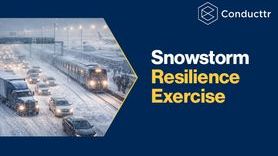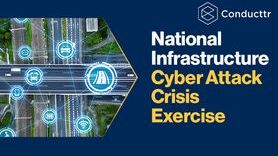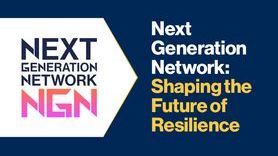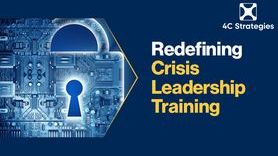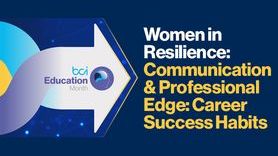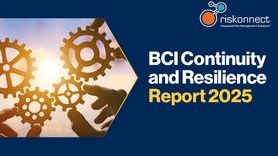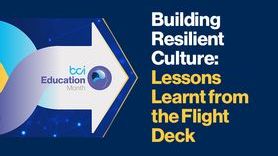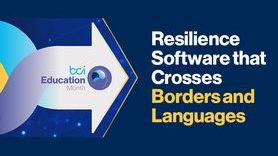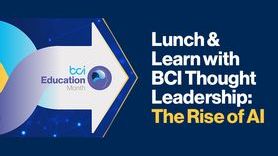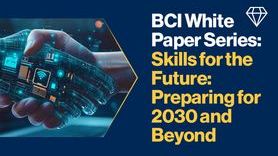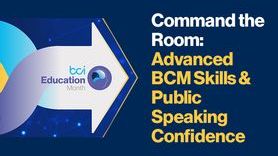Future proofing your career through education, training and developing skills | In Conversation with WiR Committee Members
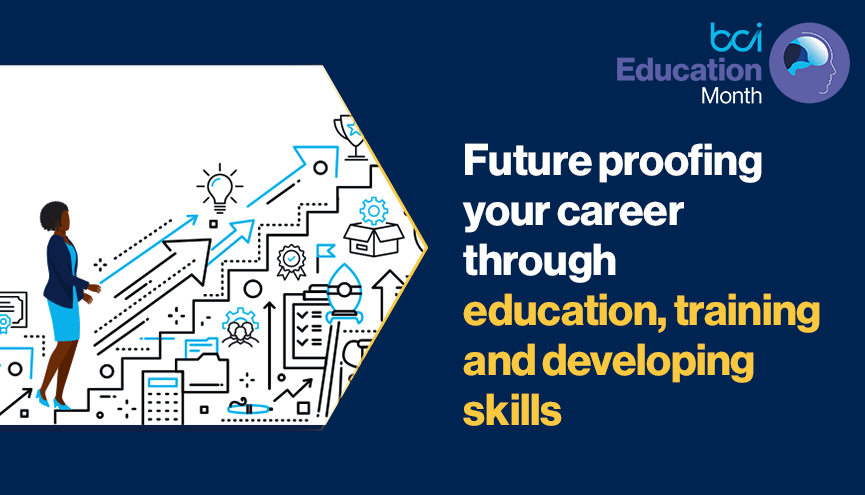
By Ratna Pawan (RP), Resilience professional & BCI WiR Committee Member
I was very excited with the brilliant theme chosen by The BCI for their much awaited annual BCI Education Month and I thought of interviewing some of the most experienced BCI WiR Committee members to get their perspective on the subject.
The BCI WiR Committee members are geographically and culturally diverse, but their experiences and responses have some key common threads. Let me start by introducing the stellar team, of which I am proud to be a part of:

Rina Singh (RS), Chair, BCI WiR, is a multi-award-winning resilience practitioner with international experiences across the resilience disciplines in an array of sectors. Rina is the founder and host of the RESILIENCE POD podcast, video and blogs.

Margaret J. Millett (MJM) MsBC, FBCI (Hon), MBCP and Vice-Chair, BCI WiR, has been actively involved in the global Business Continuity Management (BCM) profession for around 30 years. She has held board positions with Business Continuity (BC) organizations, written publications, and spoken at BCM conferences in North America, Europe, Asia and the Middle East. She currently works for Uber Technologies, Inc., as Head of Global Resilience.

Milena Maneva (MM) is the managing committee member at BCI WiR, the Head of BC and Resilience, EMEA for Cantor Fitzgerald / BGC Partners, and the co-founder of the Resilience Think Tank. She has 14+ years of combined working experience in financial services, risk management, oil trading, governance, business continuity and crisis management. She is also in the Steering Committee for Network of Women (NOW-London) and is passionate about helping organizations become resilient, and helping people realize their true potential.
Harshita Mathur (HM), managing committee member of the BCI WiR, is a Resilience professional with 9+ years of experience, currently working within Business Analysis and Engagement within the higher education sector. She is passionate about cultivating inclusive spaces through the resilience, continuity and improvement, and sustainability fields.
Winifred Ndukwe (WN), managing committee member for The BCI WiR, is a Security Governance expert at AXA with experience that cuts across Information Security, BC, Crisis Management, IT Service Continuity and Risk management. She currently supports various professionals in several countries that cuts across Latin America, Europe, Asia, Middle East and Africa in the development and implementation of their framework and processes.

Bethany Warren (BW), managing committee member for The BCI WiR, is an award-winning Senior Resilience Consultant, working at Marsh Advisory. She is an Associate Member of the Business Continuity Institute (AMBCI).

Brendine Tong-Sejake AGA (BTS); PECB ISO 22301 Lead Implementor, AMBCI, and managing committee member for The BCI WiR, is the Continuity and Resilience Professional Public Sector 2021 BCI Africa Winner and a seasoned Senior Risk Analyst at South African Reserve Bank (SARB) with over 15 yrs of experience in the financial sector. She is also a committee member at the BCI Southern Africa (SADC) Chapter.
RP: In an ever-changing environment, how important are training and education to make sure that you are prepared for newly emerging threats and risks?
RS: Essential, as they aid in job satisfaction, morale, motivation, efficiencies and innovation; resulting in financial gain to the professional and the business.
MJM: Given the likelihood of increasing threats and risks; training and education are paramount. Covid-19 provided a transformation on how training and education moved online. We need to continue the transformation as new technologies become available. It is an exciting prospect!
MM: Training and continuous education should be on everyone’s radar, life is a long-life learning journey. The more you think you know, the more you need to start learning again. Join focused or established BC/Resilience groups and professional affiliations as a member, this can be a sure way to review where you stand among other practitioners and how you can progress.
HM: Training and education are key in professional development and staying up to date with current practices to prepare for newly emerging threats and risks. Similarly, networking and participating through platforms where colleagues and like-minded resilience professionals can share ideas also contribute to growth and learning.
WN: Life is a continuous learning process. As a result of its spontaneity, one cannot confidently overcome life huddles without constantly increasing knowledge, and as such makes education an integral aspect to responding to threats and risks.
BW: The world we live in is changing every day and the pandemic has been a poignant example of this. I am a strong advocate for continuous learning and development and recognize it is crucial to ensure we can remain prepared and open minded around emerging threats.
BTS: We are living in a volatile, uncertain, complex, and ambiguous (VUCA) world and it is critical to continuously learn through training and educational programs to keep ourselves abreast with the changing world.
RP: What role have educational resources and BC training played in your career?
RS: It has been an essential backbone in understanding BC theory to enable me to implement confidently in real life businesses.
MJM: When I started in the BC Profession attending a BC Certification course was the only way to learn about the principles of the profession. I believe it is important to learn something new every day. Over time, the profession as evolved and will continue to evolve. Therefore, it is important to continue to participate in educational and BC training to stay current & to learn how others within the profession run programs.
MM: After being introduced to the BC world, I believe the educational foundation enabled my confidence of what good practice is and how to incorporate the BCM lifecycle. It is important for a BC/Resilience practitioner to be able to refer to several standards and educational materials. Holding a certification is definitely a plus, this can boost your confidence and add value to your integrity, open doors and opportunities as well as set you apart from other candidates if you are applying for a job.
HM: As an individual who loves to learn, I found educational resources and BC training both exciting and extremely helpful in shaping my understanding of theoretical concepts. With a strong educational foundation, I was then able to apply what I’d learned to real life scenarios, most recently through Covid-19, and implement necessary procedures within my workplace.
WN: It has helped me to be more confident and precise in managing BC and crisis incidents/events. I am also more prepared to avert and preempt possible risks that could crystalize by implementing appropriate controls/mitigation actions.
BW: I entered this field four years ago without knowing it existed! Without completing the CBCI and other training courses I would have really struggled as this gave me the foundation of knowledge and credibility, I needed to kick start my career.
BTS: When I started in this profession, I took a CBCI exam which really set me up for success and gave me credibility. In addition, the BCI provides access to webinars and articles which helps professionals in the continuity and resilience profession and keep up to date with changes.
RP: As an experienced BC practitioner, what skills would you say are important to build in this sector? What skills are you looking to reinforce/acquire in the future?
RS: Emotional quotient (EQ). It simply is not enough to know your discipline textbook cover to cover. Self-awareness, self-management, empathy, relationship management, and effective communication are the key ingredients to EQ.
MJM: Additional skills are recommended to be successful in a management position within the profession. To be effective with top management I believe individuals should have public speaking, business writing, know how to prepare & manage a budget, negotiation skills, & strategic thinking.
MM: The skills BC/Resilience Practitioners need are emotional intelligence, quiet confidence, leading and empowering others, the ability to listen and challenge, problem-solving and perseverance. The pillar is to be an effective communicator and know how to build and manage relationships.
HM: Effective communication, empathy and compassion are key skills in most professions, but especially so within BC. These all contribute to building strong relationships and being a leader within your organization and industry, going a long way to ensuring your workplace is as resilient as possible when facing a disruption. In addition, leadership skills aligned with IDBE (Inclusion, diversity, belonging and equity) principles is what I believe we need more emphasis on going forward.
WN: In addition to technical skills, it is important to be able to forecast, be proactive, be willing to be flexible and be willing to adapt.
BW: Working in BC is all about people. Some of the key skills and traits I believe as valuable are; being able to build long lasting relationships, having effective communication skills, being a solutions based problem solver, having an eagerness to learn and not being afraid to push yourself outside of your comfort zone.
BTS: Over and above technical skills, BC professionals need strong leadership, communication and interpersonal skills. They should be able to adapt to a constantly changing environment.
RP: How important is it to share experience and knowledge with other BC practitioners, as well as with those just entering the industry? What are the most effective ways to do this?
RS: The very act of sharing your experiences can help you and others deal with same struggles and realise we are not alone, which is imperative, especially for those who operate a resilience program single handedly.
MJM: I am a firm believer in paying it forward. This is especially true in a profession where many people do not understand what individuals do for a living. You may want to consider getting involved with a Mentor Program. Participation allows individuals to meet new people, develop the skills needed to change the course of your career, discover new aspects of the profession, learn about different companies and/or industries, & best practices.
MM: If you want to achieve resiliency, it is not possible to do it by yourself. You will have to work with other professionals and share experience and knowledge to advance everyone. Do not isolate yourself in a silo. Help novice professionals and newcomers to embark on the resilience journey and remember we are not here forever! Helping others is helping yourself advance on the way! The way to do this is to connect with others in the profession via social media, e.g., LinkedIn, Twitter, and via the available communities in your region, e.g., The BCI Community Directory or other networking groups and chapters. Joining a BC/Resilience group or chapter is also a way to contribute to the industry and share experience and knowledge with others.
HM: Extremely important! We all remember what it feels like to be new in the industry and eager and excited to learn about ways to get involved and soak up knowledge. Sharing concepts, experiences and ideas with more and less seasoned professionals within the field helps create an inclusive and collaborative approach to resilience – something that’s key within the BC profession. Sharing your personal resilience journey, networking and contributing to articles and thought leadership through platforms such as the WiR are effective ways to do this.
WN: It is important to share the knowledge, learnings and experiences as this is a practical way of ensuring the continuity of the profession. This can be done by being part of/creating communities, engaging in workshops, forums, webinars, etc.
BW: This is really important. As practitioners we should be supporting each other by sharing failures, learnings, experiences, advice and tips and this is especially important for newcomers. Networking and attending industry events are a great way to do this.
BTS: Sharing experience and knowledge is the fastest way to grow in this field, and in my opinion, it's crucial for even seasoned professionals to pay attention to newcomers because they might provide a fresh perspective.
RP: What are the pathways / opportunities available for young professionals that choose a career in BC and Resilience?
RS: Your skills are transferable in an array of resilience disciplines therefore consciously look to get experience in different industries and roles. The pathways and opportunities are endless if you look. E.g., BC skills can be transferred to Cyber skills, Risk Management, Crisis Management etc.
MJM: At what point can we expect individuals to aspire to become BCM professionals rather than simply ‘falling into’ the profession? Does BC need to firmly establish its position within the organizational structure before it will be sufficiently addressed in academia? At what point will we find business leaders pre-equipped with an understanding of the value that business continuity brings to an organization? Only by building awareness and understanding can we transform our industry from unknown to well-known. The knowledge and expertise that resides in BCM carries value beyond the businesses we offer it to. The various skills that we have refined in our professional lives encourage our personal successes and ability to adapt to changing circumstances. The business analysis function within a business continuity role refines critical-thinking skills. The planning portion helps to develop personal resilience and strategic-thinking capabilities. The necessity of establishing relationships and depending upon others in all areas of a business help us to realize that relationship building, and that effective communication is essential to acquiring what it is you need or want. Lastly, the project management role fosters proficiency in time management and organizational skills. For all of these reasons, being a BC professional is a role that provides value beyond what the role itself is known for.
MM: We need to build better leaders and prepare the next generation for the inevitable. More young people need to join the BC/Resilience industry but often opportunities are limited. The best opportunity for young professionals is to network and being proactive. BC certification can help with your job search. Speak to industry practitioners and ask them to share their experience and ways you could jump on the career ladder.
HM: There are so many options, especially through the virtual and hybrid world we have now learned to navigate around. Formal education and certifications will help provide new professionals with the theoretical foundation to understand the resilience field but seeking out mentorship and guidance from seasoned professionals will also aid young professionals to explore different career avenues. LinkedIn is a great place to start to build a professional portfolio and learn more about those who have been in the industry for many years.
WN: The profession itself is built on ensuring the longevity and continuity of any business. This puts you at an advantageous and strategic position to liaise with top executives and management in achieving the company’s objectives. Thereby, making the benefits for your career growth limitless.
BW: No matter what education or experience you previously had, it will tie into resilience in some way or another. There are so many routes within this industry that you can go down, it really depends on what you enjoy! I have gone down the consultancy route where I get to experience the full breadth of resilience projects with clients from varying industry sectors. I really enjoy the fast-paced nature of the role where no two days are the same.
BTS: This is the one career that will expose you to wider areas such as risk management, organizational resilience, health and safety, information technology, supply chain, facilities management, operations, cyber security amongst other disciplines. Hard work, perseverance, networking and continued learning will get BC professionals very far.
RP: Is there anything else you wish to share about your experience as a BC practitioner?
RS: Seek out opportunities proactively and challenge your own perspective by moving outside of your comfort zone.
MJM: A career in BCM is fulfilling and rewarding. I highly recommend the profession to anyone who is new to the workforce or looking to change careers. There are endless global opportunities!
MM: Self-confidence and self-awareness are crucial. You have to be patient, work hard, show up and you are sure to succeed and make progress.
HM: Everyone can have something unique to contribute to the field, and making sure you stay informed and work towards building your confidence can take you a long way. Giving back to the community through sharing your experiences and challenges can always help others with their own respective journeys, so please get involved, reach out and know that there’s always a supportive network available for those who ask for guidance!
WN: It is advisable to adapt and thrive, in other words, be fluid as this approach helps you make optimized decisions to suit the peculiarity of any crisis/situation.
BW: We have the ability to make a real difference to this industry, some opportunities will fall on our laps but for others we have to push ourselves out of our comfort zone and work for them. Failure does happen and while it is not a nice feeling to experience setbacks it is key for us to learn and develop. Finally, the power of networking should never be underestimated, it has opened up so many doors for me!
BTS: My career as a BC opened up a whole new world to me that I had no idea existed. Being able to work with various resilience disciplines has helped me develop my skills to a whole new level and exposed me to a larger community. Being part of the BCI WiR and BCI Southern Africa Chapter gave me an opportunity to share my knowledge, network and learn from other BC professionals.
About the interviewer:

Ratna Pawan (RP) is Program Director-Risk Advisory, EY India & managing committee member @ BCI WiR. She has significant professional experience in non-financial risk management within the Financial Services sector across various Banks. Ratna is an active panellist and speaker at various industry forums, a managing committee member of BCI Mumbai Chapter and a proud recipient of the recognition as one of the ‘Top Women Security Influencers in India’ in 2022.
Learn more about Education Month 2022:
To be the first to know about BCI News and more follow us on LinkedIn here, or on Twitter @TheBCEye


